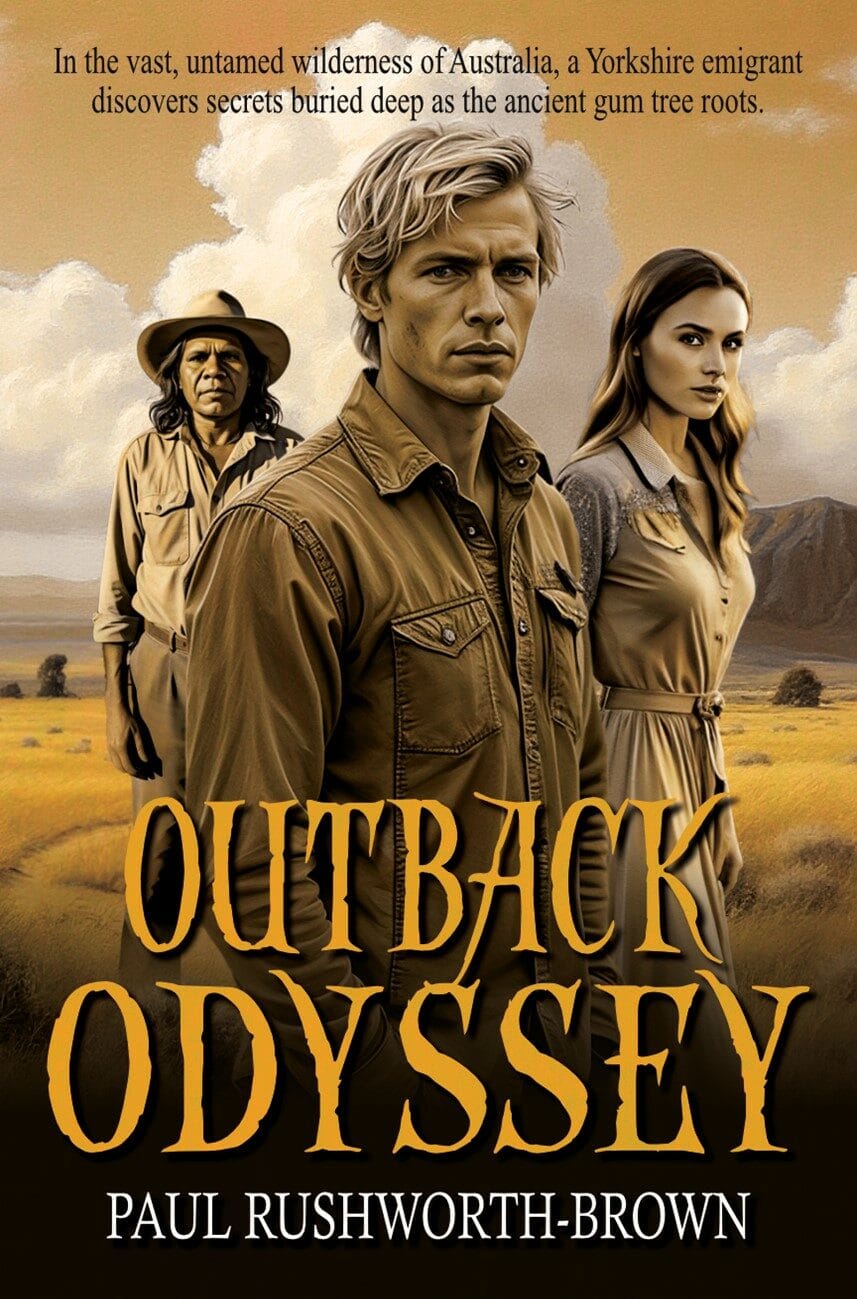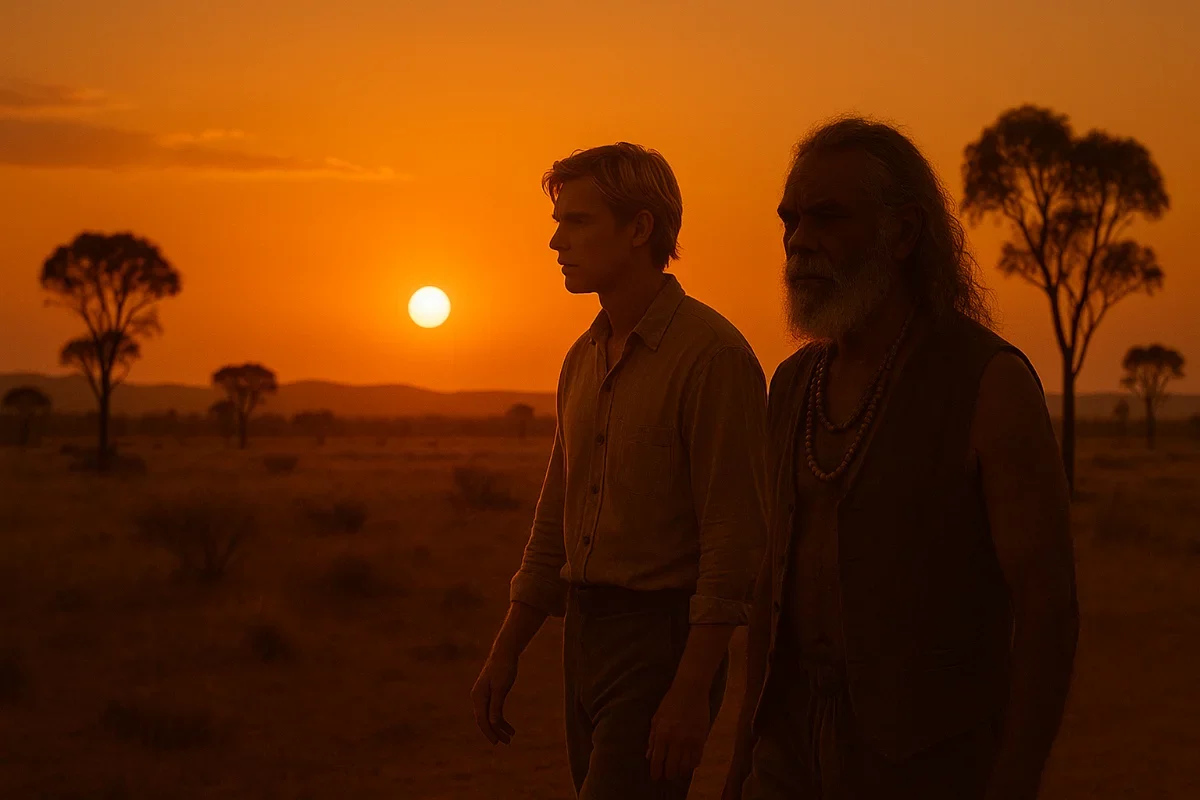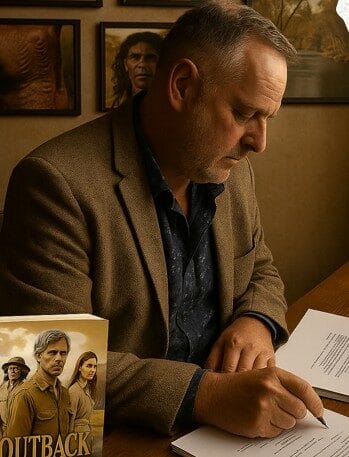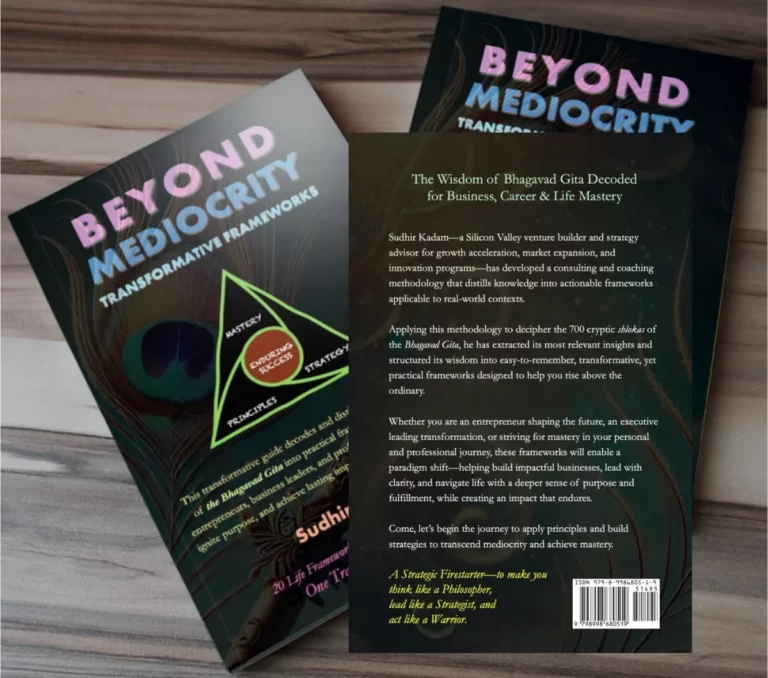Australian Fiction Tackles Reconciliation As Writers Bridge Cultural Divides Through Storytelling
Australian fiction highlights reconciliation, mental health and historical trauma, using storytelling to foster cultural healing and self-awareness

Outback Odyssey By Paul Rushworth-Brown
“Outback Odyssey” tells the story of a young man from Yorkshire who emigrates to Australia in the 1950s under the Big Brother Movement scheme. Working on a sheep station with Aboriginal stockmen, he learns the ways of the outback and pursues the legend of Wiberg’s Gold. This novel promises to combine the rich historical detail Rushworth-Brown is known for with the rugged allure of the Australian wilderness.
Australian fiction is experiencing a profound shift as contemporary authors increasingly tackle the nation’s most difficult conversations around reconciliation, mental health and historical trauma. As so often is the case, literary movements mirror a country’s ongoing struggle to address unresolved injustices whilst offering pathways toward healing.
As Australia observes National Sorry Day on 26 May and enters National Reconciliation Week, the voices calling for meaningful action grow louder.
Yet 28 years after the landmark Bringing Them Home report detailed the harrowing experiences of the Stolen Generations, Queensland and Western Australia remain the only states without compensation schemes for survivors.
‘We’ve had too many survivors pass away before they see justice,’ said Healing Foundation CEO Shannan Dodson, calling for urgent action. ‘Mental health isn’t separate from justice—it’s part of it.’

Fiction as a Bridge to Understanding
Into this charged atmosphere comes a wave of Australian authors using historical fiction to explore themes of cultural healing and reconciliation. Acclaimed author, Paul Rushworth-Brown‘s latest novel ‘Outback Odyssey’ demonstrates this trend, weaving together post-war migration trauma with First Nations wisdom against the backdrop of 1950s Australia.
The story follows Jimmy, an English migrant haunted by war trauma, who ventures into the Australian outback and forms an unlikely bond with Jarrah, a First Nations Elder. Their relationship becomes a bridge between colonial ignorance and First Nations knowledge.
‘There’s a quiet mental health crisis in rural and remote communities—particularly among men, particularly among those whose pasts have never been heard,’ said Rushworth-Brown. ‘Outback Odyssey is about finding language for the unspeakable, and honouring stories that were never given space.’
Rural Mental Health and Cultural Connection
What makes works like ‘Outback Odyssey’ particularly relevant is their focus on rural mental health—an often overlooked aspect of Australia’s wellness conversation. The isolation of outback communities, combined with cultural disconnection from the land’s original inhabitants, creates unique psychological challenges.
Fiction provides a safe space to explore these issues. Mental health literature is increasingly recognising the power of narrative in processing generational trauma. Through allegorical storytelling, readers can process complex emotions around cultural identity, historical trauma and belonging without the defensive responses often triggered by direct political discourse.
The Healing Power of Narrative
The therapeutic potential of storytelling is increasingly recognised in trauma recovery work. When Aboriginal Elders share cultural knowledge through narrative, they’re not simply passing on information—they’re providing frameworks for understanding relationships between people, land and spirituality that can benefit all Australians.
In Rushworth-Brown’s novel, Jarrah’s guidance of Jimmy represents this exchange of wisdom. Through storytelling, observation of Country and ceremonial guidance, the Elder imparts a worldview shaped by tens of thousands of years of connection to land, community and healing.
‘Outback Odyssey is about healing through truth-telling, listening to forgotten voices, and finding reconciliation through shared stories and reconnection to the Country,’ the author explains.
The Literary Landscape of Truth-Telling
Writers of colour across the literary spectrum are finding new opportunities to tell their stories, with First Nations authors like Tara June Winch, whose novel ‘The Yield’ won the 2020 Miles Franklin Literary Award, and Bruce Pascoe, whose ‘Dark Emu’ fundamentally shifted mainstream understanding of pre-colonial Australia, leading these conversations.
These works challenge foundational myths about Australia’s past whilst offering new frameworks for understanding the present. The hunter-gatherer narrative used to justify dispossession is being replaced by evidence of sophisticated agricultural systems and land management practices.
The impact extends beyond literary circles into education and public consciousness. Schools are incorporating these texts into curricula, and book clubs across the country are engaging with difficult histories through the accessible medium of storytelling.
National Reconciliation Week’s Literary Context
As Australia enters National Reconciliation Week (27 May – 3 June), this literary movement adds depth to national conversations. Reconciliation Day on 2 June marks the anniversary of the 1967 Referendum, when more than 90% of Australians voted to include Aboriginal people in the census—symbolic progress that was only the beginning of a longer journey.
Contemporary fiction serves as both mirror and guide for this journey. It reflects where Australia stands today whilst pointing toward possible futures built on mutual understanding and respect. The rising global interest in First Nations art and storytelling demonstrates growing appreciation for First Nations perspectives.
Looking Forward
As 2025 unfolds, expect to see continued growth in this literary sector. Publishers are actively seeking manuscripts that address reconciliation themes with authenticity and nuance. Book festivals are programming more panels on First Nations literature and cross-cultural dialogue.
The challenge for non-First Nations authors writing in this space is to approach these topics with appropriate cultural sensitivity whilst still contributing meaningfully to national conversations. Works like ‘Outback Odyssey’ suggest this is possible when authors centre First Nations wisdom rather than appropriating it.
For readers seeking to understand Australia’s past and present, this literary movement offers an accessible entry point into complicated conversations. Through the power of narrative, complex political and social issues become human stories that resonate on emotional as well as intellectual levels.
The question remains whether this literary renaissance can translate into the political action needed to address ongoing injustices. With survivors in Queensland and Western Australia still waiting for compensation schemes, and rural communities struggling with mental health challenges, fiction alone cannot solve systemic problems.
Yet stories matter. They shape how we see ourselves and each other. They create empathy and understanding where policy papers often fail. In a nation still learning how to have honest conversations about its history, literature may prove to be one of the most powerful tools for building the reconciliation that remains tantalizingly out of reach.
About Paul Rushworth-Brown

Paul Rushworth-Brown writes authentic historical fiction set in the 16th and 17th centuries, combining gritty realism with suspenseful storytelling. His novel ‘Red Winter Journey’ was nominated for the NSW Premier’s Literary Awards, whilst his latest work ‘Dream of Courage’ has been long-listed for the Historical Fiction Club’s Book of the Year Award. Paul has appeared on ABC, BBC, and America Tonight with Kate Delaney, and serves as official podcast host for History Bards / Down Under Interviews for The Historical Fiction Company.
The US Times praised his work, noting that “Modern writers usually don’t know what it was like to live in the past, but Rushworth-Brown does this with great skill.”
Follow him on X @Brown9Paul





